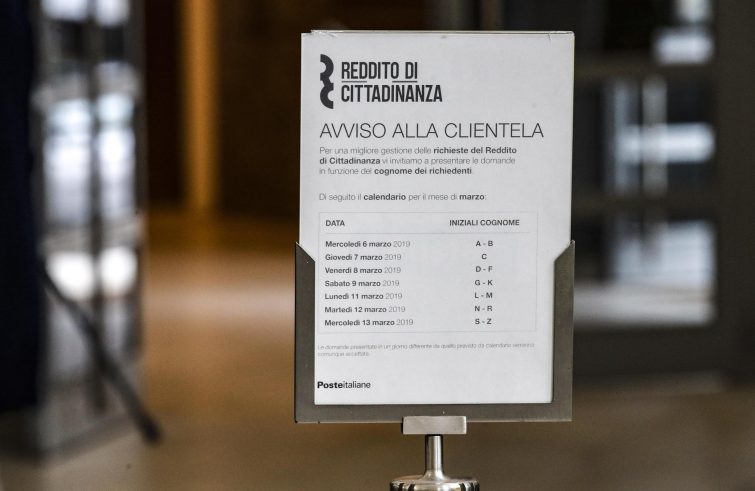
By January 2023, the Citizenship Income involved more than 1.1 million households with nearly 2.5 million people receiving an average monthly amount of €562.78, according to data released by INPS – Italian Social Security service- related to the first month of what is expected to be the last year of the measure’s implementation, at least as we have known it so far.
In fact, under the latest Budget Law, the citizenship income (RDC) is set to be abolished as of January 1, 2024.
What will happen thereafter is yet unclear.
The government’s declared aim is a “comprehensive reform of anti-poverty and active inclusion measures.”
However, as of this year, “with the exception of households comprising persons with disabilities, minors, or people aged sixty or older,” the disbursement will be granted for a maximum of 7 monthly payments. The grantees, deemed eligible for employment, “must attend six-month vocational training or refresher courses.” In case of “failure to attend the assigned program, the family unit of the recipient of the citizenship income ceases to be entitled to the benefit” (termination of the benefit becomes effective also upon refusal of the first employment opportunity). The fact remains that the vocational training and refresher courses program has not yet been adopted, so for now the mandatory provision has remained on paper.
Meanwhile, however,
the government and the concerned minister in particular have decided to revoke the mandate of the National Agency for Active Labour Policies’ – ANPAL- governing board two years ahead of its scheduled deadline.
ANPAL is a key player in this sector, and evidently the government and the ministry intend it to be run by individuals they trust and not by representatives of previous administrations. A shareholders’ meeting is scheduled for next week, to finalize the renewal of the board.
In the meantime, attempts are being made to plug a leak caused by a paradoxical oversight in the same Budget Law. A parliamentary question from opposition MPs (in this case, the Democratic Party- PD), highlighted the fact that the measure to replace the Citizenship Income scheme (RDC) targeted also the regulations that made undue entitlement to the subsidy a crime.
Evidently, it was not the executive’s intention to legalize fraud and cheating, but now it is necessary to make amends with a new regulation.
Rectifying all the consequences of the improper abrogation, however, is easier said than done, since the area of criminal law is governed by the principle of non-retroactivity of the unfavorable law and retroactivity of the law that favours the defendant.
Moreover, the current Citizenship Income scheme has come under the spotlight of the European Commission, which opened an infringement procedure against Italy because of the 10-year residence requirement to qualify for the measure.
Under EU law, social welfare benefits like the “’citizenship income ‘should be fully accessible to EU citizens who are workers, self-employed or who lost their job, regardless of their residence history.”
Furthermore, the 10-year residence requirement directly discriminates against beneficiaries of international protection, in breach of a 2011 EU Directive.











